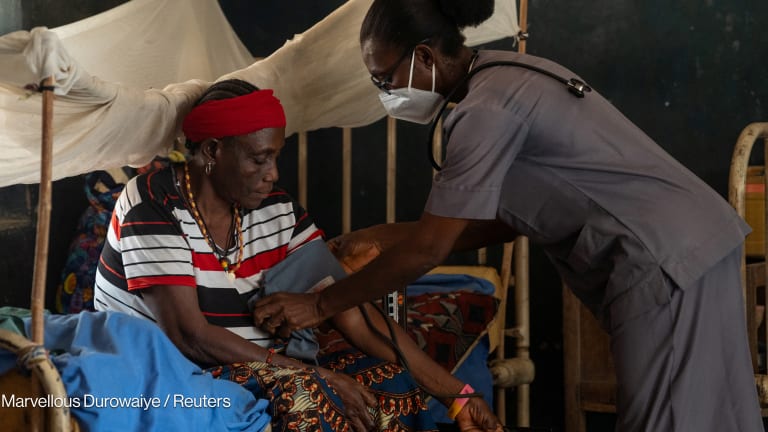
Country ownership was recently mentioned by EU Commissioner Andris Piebalgs in an interview with Devex, as well as USAID Administrator Rajiv Shah when he delivered USAID Forward’s progress report.
But how has the concept truly progressed since the Fourth High Level Forum on Aid Effectiveness in Busan in 2011?
After that meeting, country ownership — allowing stakeholders in developing countries to take charge of their own development — became a buzzword among the aid community, and it became one of the four basic principles of development cooperation agreed upon by development stakeholders along with focus on results, inclusive partnerships, and building transparency and accountability.
However, barely two years later, several British aid groups are raising concerns on its progress.
“Country ownership as the key guiding principle of aid effectiveness remains strong in rhetoric, but is dwindling in reality,” says a new joint report by the U.K. Aid Network and Bond that will be launched on Tuesday on the sidelines of the third meeting of the Steering Committee of the Global Partnership for Development Cooperation in Addis Ababa, Ethiopia.
The document — obtained in advance by Devex — makes some bold assessments: Development stakeholders have yet to make a final agreement on the indicators proposed, data on country ownership progress remains limited, and “political will” to implement the full Busan Partnership “has been sluggish.”
In fact, the report quotes a June 2013 survey by Aidwatch which notes that majority of European Union member states have yet to create a Busan implementation strategy — and some “do not even have any plans to develop one.”
Challenges
The report acknowledges many challenges facing the complete adoption of country ownership by many aid providers, and one of the main obstacles is pressure to produce results.
Foreign aid has suffered severe spending cuts as part of measures to address the current fiscal crisis in the United States. The EU is set to maintain aid levels at the same level as the last budget season, even if the next framework covers seven years.
The United Kingdom, meanwhile, has decided to ring-fence its aid budget, but it is undergoing immense pressure to show aid impact.
The desire to get measurable and more tangible results can be understandable amid austerity measures being taken by many donor governments. But it can sometimes undermine country ownership just because some of the longer term goals are more difficult to measure, UKAN Coordinator Amy Dodd told Devex.
For instance, developing countries may place system strengthening as a key need, but she said it is “not as straightforward as when measuring how many people benefited with the bed nets we delivered.”
The same goes for budget support. Some European donors, such as the U.K. and Denmark, have reduced their use of budget support in recent years. This could be due to donors being cautious in using an aid modality where they are not sure can demonstrate clear-cut results, and where there is a tendency for their aid to fall into corruption and wastage.
“We would be keen to work, and are looking at, how these can be managed and avoided. Donors of course also work on these issues, but they can be difficult and could certainly be one of the pressures driving a reduction in this aid modality,” Dodd explained.
At times, donors may be well placed in placing conditions on aid, like in Afghanistan, where Dodd agreed calls for improved governance and accountability are warranted. However, she said “the concern is what measures are put in place and how those are agreed with partner countries … We need to keep working together with partner countries to do this, not work around elected governments.”
Going forward
The report clearly provides a grim assessment on the progress of country ownership, but admits implementation of the Busan Partnership is still in its “early stages.”
It recommends several key points for the Steering Committee to discuss, including acknowledging the factors that prevent country ownership implementation, finalizing the indicators and their immediate implementation, and setting timelines and targets to ensure progress, such as increasing budget support and using country systems as a “default option.”
The report also provides several recommendations for donors.
Apart from producing a Busan implementation strategy, it underlines the need for donors to improve data reporting and transparency, and “act on impediments to country ownership based on evidence from partner countries and elsewhere.”
Read more development aid news online, and subscribe to The Development Newswire to receive top international development headlines from the world’s leading donors, news sources and opinion leaders — emailed to you FREE every business day.








